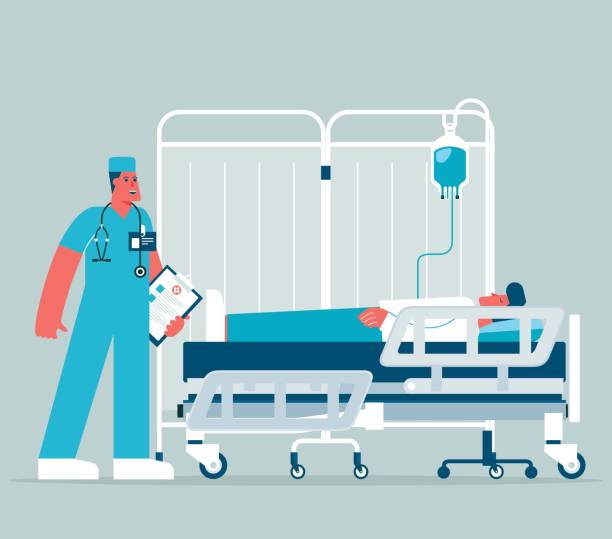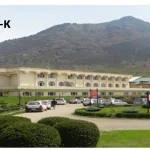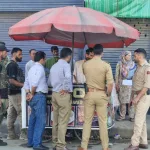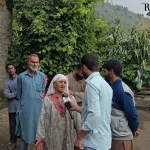Srinagar, Feb 11: Doctors across public hospitals in Jammu and Kashmir have failed to adhere to prescription norms, leading to mass medication practices that continue to burden out-of-pocket expenditures.
On Feb 1, 2025, Health Department Kashmir, referring to a 2016 order of the H&ME Department, directed all doctors in government hospitals to adhere to prescription norms and warned of strict action for non-compliance. However, the order remains unimplemented.
The order had said that the prescription shall be written in legible capital letters and signature, name and designation of the doctor shall be legibly written at the bottom of the prescription.
“The medicines shall in first place be prescribed to patients in Health Care Institutions for their treatment out of the drugs available as part of govt. supplies in respective health institutions. Such medicines shall be prescribed in generic form only,” the order had said.
Rising Kashmir spoke to many doctors across J&K, who stated that the prescription regulations of the National Medical Commission (NMC) and the health department were not being followed, emphasizing the need for stricter policies.
A senior doctor in J&K Health Department posted in a Srinagar hospital said the doctors have failed to follow the prescription norms and mass medication was continuing. He said many factors are responsible for the non-compliance.
“Some doctors have deals with the medical companies and they write the medicines of their choice and not the recommended ones that are available in hospitals,” he said.
He said all medicines should be made available in government hospitals at Janaushadhi Kendras, which would also help prevent doctors from prescribing unnecessary medications.
Ishfaq Ahmad, a resident of Bandipora, said that doctors in many hospitals across the district are not following prescription norms, which is taking a toll on patients.
“They don’t mention their names or write prescriptions in capital letters, making it difficult for patients to understand what has been prescribed. Many prescribed drugs are not available in Janaushadhi Kendras and people buy them from medical shops,” he said.
The DHSK order had also instructed Chief Medical Officers of Kashmir division to nominate a nodal officer for District Hospitals and Sub-District Hospitals in their respective districts.
The nodal officer was assigned the responsibility of randomly collecting photocopies of at least 1% of prescriptions written by government doctors in OPDs daily.
These collected prescriptions were to be submitted before the Prescription Audit Committee, which CMOs were directed to constitute at the district level. The committee was tasked with scrutinizing the prescriptions to ensure compliance with prescribed norms and guidelines.
Complaints continue to pour in hospitals and to the health department in which patients have raised hue and cry over the lack of prescription audit.
Saleem Ahmad, a patient who recently was unwell and visited the nearby SDH Pattan in Baramulla said the doctor prescribed him medicines of Rs 1,200 for just cough and cold.
“There is a lot of difference between the prescription of one and another doctor. A common man doesn’t know what the doctor writes on the prescription. This must be stopped and strict action should be taken against doctors,” he said.
On the other side, despite Prescription Audit Committees (PACs) in place in Jammu and Kashmir, mass medications continue. A senior consultant in J&K Health Department questioned over putting hospital administrators and medical officers in PACs.
“Prescription audit is a failure as MBBS doctors have been tasked to audit super specialists. Consultants should be in audit teams who can do better audit. The audits are not being done. It is also a big failure,” the doctor said.
The CMO’s and medical Superintendents continue to disregard the instructions and fail to implement it in letter and spirit within their respective jurisdiction. The directorate has also not initiated action against the erring doctors and hospital administrators.
Similarly, complaints also continue to pour in from different hospitals and areas of Jammu division and people have raised questions over the silence of the health department.
People also said the problem is more severe in rural hospitals that don’t have Janaushadhi Kendras and patients are bound to visit private medical shops leaving no option for them.
Amrit Stores and Janaushadhi Kendras were established to ensure generic medicines were included in prescriptions. However, doctors say PAC reports do not reach higher officials.
On Feb 02, 2023, the Directorate of Health Services Kashmir in an order warned CMOs Medical Superintendents to follow prescription audit norms or face action.
“Unnecessary diagnostic tests/procedures are prescribed and patients are referred to the private clinics/specialists without requirement. Drugs are prescribed in contravention to the provision of the Drugs & Cosmetic Act & Regulations,” the order had stated.
However, a senior official of Health and Medical Education said that the department will take serious cognizance of the matter and take strict action wherever the doctors and hospital administrators are found violating the norms.
In 2023, the National Medical Commission in its ‘Regulations relating to Professional Conduct of Registered Medical Practitioners’ asked all doctors to prescribe generic drugs, failing which they will be penalized and even their license may be suspended for a period.
Prescription violations in J&K hospitals burden patients with rising costs
Will take strict action against erring doctors: Official

Leave a Comment Leave a Comment







